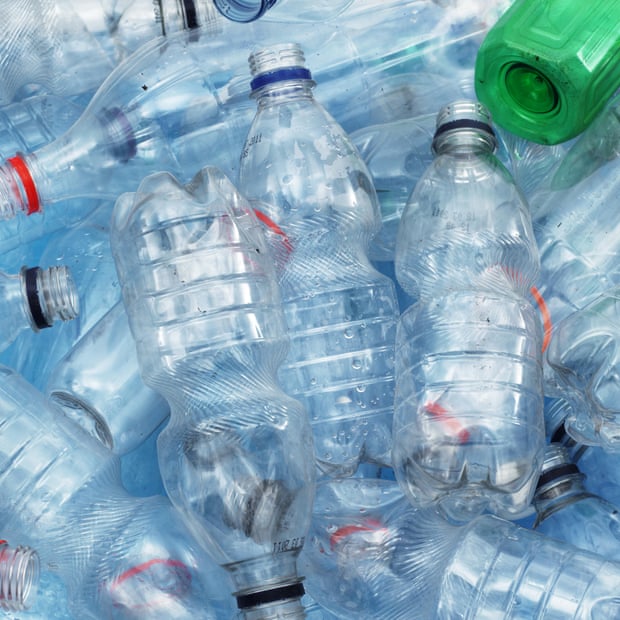Consumers will be encouraged to refill their water bottles free of charge in tens of thousands of shops, cafes, businesses and water fountains in England under plans announced by the water industry.
The national scheme aims to fight the growing scourge of waste created by single-use plastic by preventing the use of tens of millions of plastic bottles every year, as well as increasing the availability of quality drinking water.
Industry body Water UK said its members are joining forces with the pioneering Refill campaign, started in Bristol, to create a network of high street retailers, coffee shops, businesses and local authorities offering to refill water bottles in every English town and city by 2021.
Quick GuidePlastics and our throwaway society
Show

Why is plastic being demonised?
Since the 1950s, 8.3bn tonnes of plastic has been produced. Plastic is seen as a versatile, indispensable product, but the environmental impact is becoming more stark. Plastic is now so pervasive that recycling systems cannot keep up and the leakage into the environment is such that by 2050 plastic in the ocean will outweigh fish. In 2017 scientists found plastic fibres in tap water, and plastic has been found in the stomachs of sea creatures in the deepest part of the ocean. Most plastic waste ends up in landfill sites or leaks into the natural environment, where it is causing huge damage to eco-systems on land and sea, creating near permanent contamination. According to academics in the United States, by 2015, of all the plastic waste generated since the 1950s, only 9% has been recycled, with 12% incinerated and 79% accumulated in landfill sites or the environment.
Why are the supermarkets under fire?
Producers of plastic include retailers, drinks companies and supermarkets. Supermarkets create more than half of the plastic waste in the household stream in the UK. But they refuse to reveal how much they put on to the streets and how much they pay towards recycling it. Supermarkets are under pressure to reduce their plastic packaging and campaigners argue they have the power to turn off the tap. Much of the packaging they sell to consumers is not recyclable: plastic film, black plastic trays, sleeves on drinks bottles and some coloured plastic. The Recycling Association and other experts believe supermarkets could do much more to make packaging 100% recyclable and reduce the use of plastic.
Who pays to clean up the waste?
The taxpayer, overwhelmingly. UK producers and retailers pay among the lowest towards recycling and dealing with their waste in Europe. In other countries, the “polluter” is forced to pay much more. In France, a sliding system of charges means those who put more non- recyclable material on the market pay more.
What can shoppers do to help?
Supermarkets are under pressure, not least from the prime minister, to create plastic-free aisles. A growing number of zero-waste shops are springing up and consumers are being encouraged to ask for products to be sold without plastic.
Sandra Laville
Users will be able to use an app on their phone to find out where the nearest refill point is, or seek signs in shop windows. Whitbread is the first company to sign up, pledging to provide free drinking in each of its 3,000 Costa Coffee and Premier Inn locations from March.
Although shops and cafes are already legally obliged to offer free water on request in England, Scotland and Wales, the new network makes it clear to people that they are welcome via both a sticker in the window and a location point on the Refill app. It aims break the stigma around asking for water for free, even if customers have not purchased anything else.
The national programme comes amid growing public concern over plastic pollution in the world’s oceans. Last year the Guardian’s “Bottling It” campaign revealed the surge in usage of plastic bottles. In the UK 38.5m plastic bottles are used every day; just over half of those make it to recycling, while more than 16m are put into landfill, burned, or leak into the environment and oceans.
The Refill campaign persuades businesses to sign up to a scheme allowing people to refill their water bottles on their premises rather than throw them away. It already has more than 1,600 refill stations across the UK.
The new partnership will see all 15 water companies in England support the expansion of the scheme over the next two years. The announcement comes after London mayor Sadiq Khan confirmed plans for at least 20 new water fountains in the capital.
“We’ve seen a huge appetite for our Refill campaign across England, from individuals wanting to make a difference in their community to national chains,” said Natalie Fee, founder of City to Sea, the organisation behind the Refill scheme. “Our Refill app puts the power to stop plastic pollution in people’s hands.”
